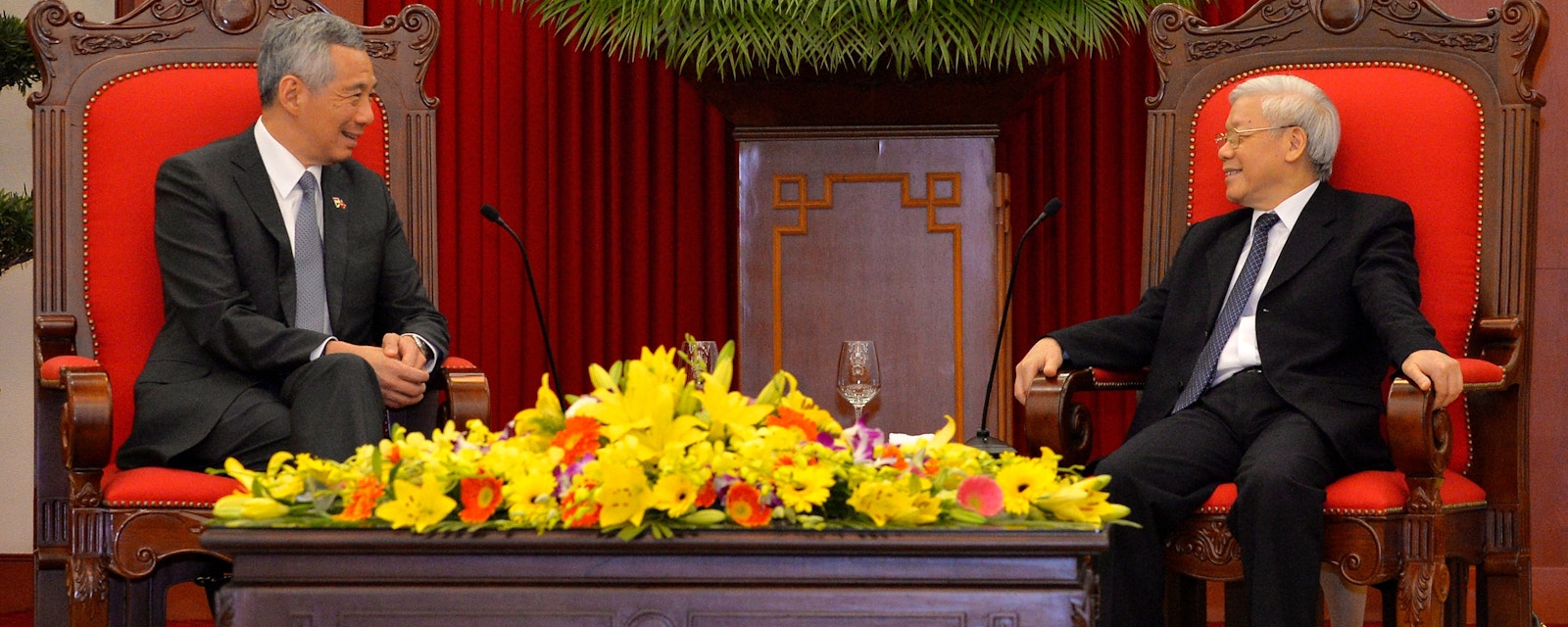Communist Party General Secretary Nguyen Phu Trong has not been seen in public for three weeks. His consolidated position makes an immediate leadership fight or major changes in economic policy unlikely. However, maneuvering for the 2021 leadership transition could accelerate and intensify.
Communist Party General Secretary and State President Nguyen Phu Trong is rumored to have suffered a stroke several weeks ago and while he may have partially recovered, his ability to work, or at least appear in public, is still impaired. The 75-year old Trong supposedly became sick while in Kien Gang province on 14 April and was brought to either Ho Chi Minh City or possibly even Japan for treatment. Local media has had no coverage outside of the bland reassurances from the government that he is only suffering from some mild, vague illness, and that he will reappear soon. The health of the country’s leaders is subject to strong bureaucratic controls on information and there is the potential for prosecution for divulging state secrets.
Trong has already missed several key public events in April and early May that he would normally have attended: a visit by US Senator Patrick Leahy, the Belt and Road Forum in Beijing, the funeral of former president Le Duc Anh, and Reunification Day/Labor Day. Upcoming events where signals of his state of health will be watched closely will include the 10th Plenum of the central committee of the Communist Party of Vietnam (CPV) scheduled this May, meetings with voters before the plenary session of the national assembly, and the start of the summer plenary session itself on 20 May.
Trong consolidated power in a lengthy process from 2011 to 2015 after the economic crisis that was blamed on then prime minister Nguyen Tan Dung. Through the past few years, he has clipped the Dung clique and prevented the rise of alternative factions within the CPV. This has been the basis for the relatively positive expectations of political stability over the next two years. His illness may not immediately change this perception because of the absence of any immediate, strong competing cliques in the party.
With regards to the economy, Vietnamese government policies have for the past few years emphasized the need to maintain economic stability by limiting the financial risks taken by state enterprises and banks, including greater privatization, while pursuing export-led industrialization. This was in reaction to the seeming financial recklessness and cronyism of the Dung years. There is sufficient momentum and senior leadership support behind this policy that it is also unlikely to change in the near term.
Looking to 2021
What his illness could do, however, depending on his actual physical condition once it is divulged, is to make the medium term more uncertain. Trong is on his second and last term as general secretary. Personnel transitions in Vietnam’s communist party are very competitive, which leads to intense jostling a year or two ahead of the scheduled change until the compromises are made that allow a seemingly uneventful transition to take place. Trong’s hold on the party would have led to expectations of a smoother handover compared to 2015 when a last-minute battle for control took place between him and Dung. However, if Trong is weakening physically and his ability to manage the transition not as assured, then this process may accelerate and be subject to more uncertainty than currently assumed.
In particular, the 10th plenum scheduled for this month is supposed to start the short-listing process for the selection of the next general secretary. It will implement Directive No. 90 of the CPV in 2017 which lays out the criteria for key party and state leaders, including health. Currently, there are four to seven possible names for this list, composed of the most senior and high-profile leaders of the party and the state, including Prime Minister Nguyen Xuan Phuc, National Assembly Chairwoman Nguyen Thi Kim Ngan, Ho Chi Minh City Party Secretary Nguyen Thien Nhan, Hanoi Party Secretary Hoang Trung Hai, Defense Minister Ngo Xuan Lich and Minister for Public Security To Lam. But even this list may change as the maneuvering intensifies in the coming months, depending on the exact status of Trong’s health. If Trong becomes too frail, he may give up his concurrent position of State President, which could be the informal kick-off for the 2021 race.





